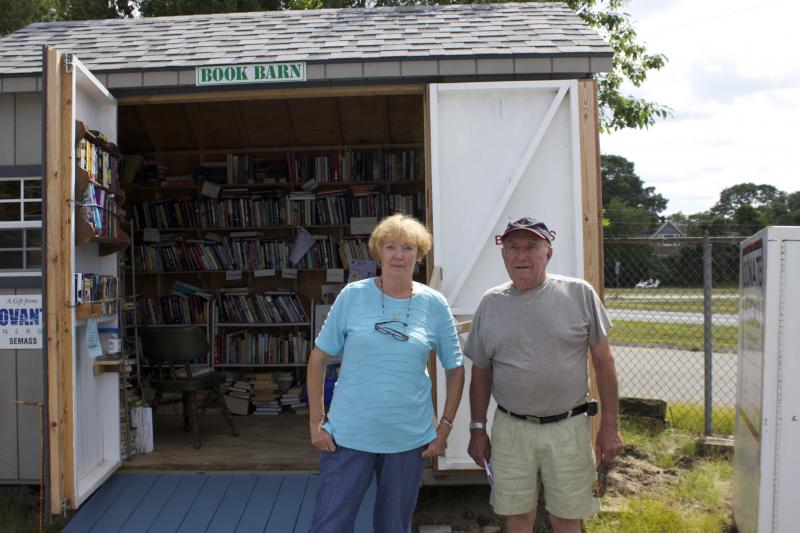Recycling center could soon be a thing of the past
The Wareham Recycling Center lost its funding from the town after spring Town Meeting in 2013. As donations and income from the center begin to dry up, the future remains uncertain for an operation that might be worth more to the town than the $8,000 it costs to run it.
“We’re the only recycling center in town,” said Jack Dixon, treasuer of the Recycling Committee and grounds foreman at the center, which is located off of Route 28 across from Atlantic Boats.
He said that while there are recycling centers in Rochester and Marion, those both require stickers, unlike the Wareham operation.
“We take some items the sticker places don’t take,” he added.
That includes latex paint (from May to October), tires and mercury bulbs. Dixon said people from many neighboring towns come to Wareham drop off materials.
The center services 40 to 60 cars on Wednesdays, when it is open from 1 p.m. to 3 p.m., and 80 to 120 cars on Saturdays, when it is open from 9 a.m. to 1 p.m., according to Dixon.
Volunteer Earl Russell said the center processes 90 tons of materials annually, which includes paper, tin, plastics and glass among other items that would likely otherwise end up as litter.
“We keep [the materials] out of the woods and the roadside,” said Dixon.
“That’s the idea of the program,” added Russell.
The Center operates with about 15 volunteers, and slightly less in the non-summer months, to help patrons unload their materials at the center.
Recycling Coordinator Marilyn Russell said it can operate until May 2015 thanks to a $10,000 donation by the estate of Hilda Leveen in the summer of 2013.
Prior to 2013, the center received at least $5,000 in town funding and made up the remainder of the costs to reach the $8,000 needed to run it.
Russell said the Committee is constantly looking for ways to make money or provide new services. They just recently started taking electronics for a small fee and have opened up a book barn and swap shed for people to trade gently-used items.
Bigger savings, such as having a vehicle to transport material or having a compactor or more storage on site, requires money that the Committee simply doesn’t have.
“Now we’re pretty much on our own,” said Russell.












